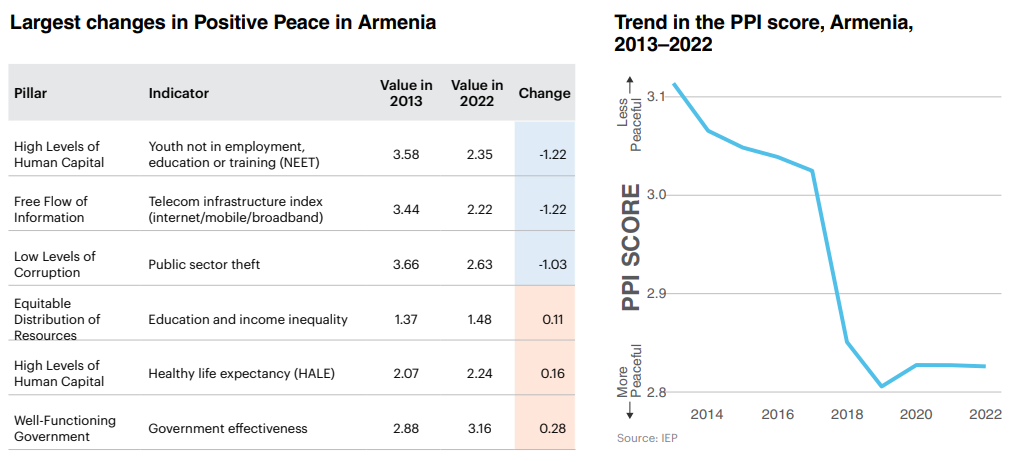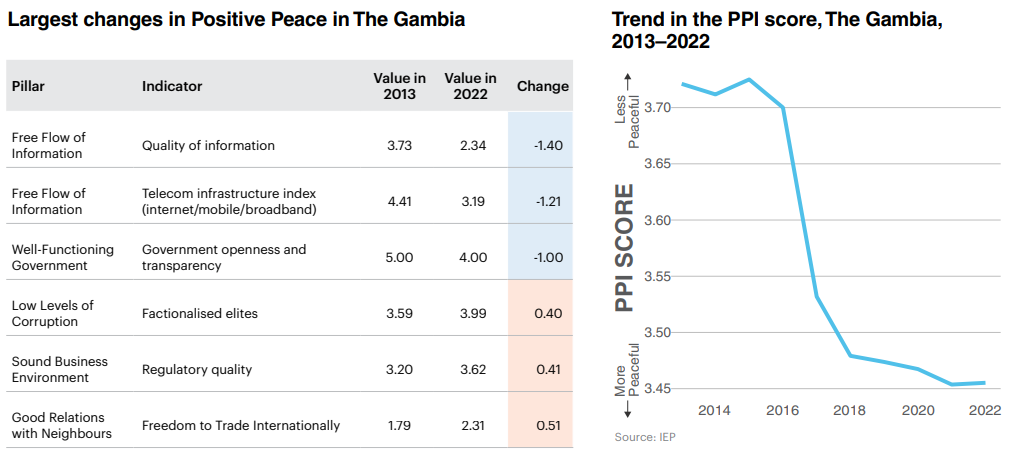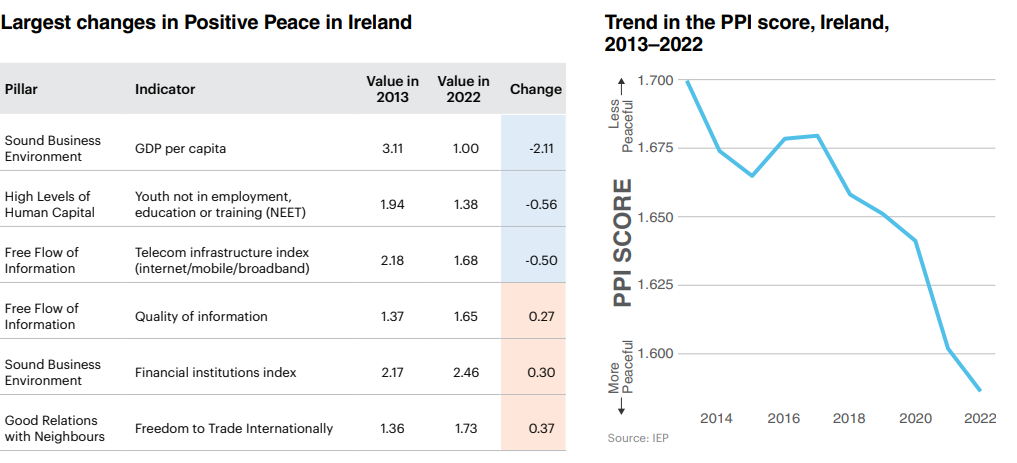According to the Positive Peace Report 2024, released by the independent think tank the Institute for Economics & Peace (IEP), societal resilience refers to a country’s ability to adapt, withstand, and recover from various challenges, shocks, and disruptions while maintaining its essential functions and safeguarding social wellbeing. This resilience is closely tied to the notion of Positive Peace, which has been shown to correlate strongly with a broad spectrum of economic, environmental, and social wellbeing indicators.
The Positive Peace Index (PPI) serves as a comprehensive measure of societal resilience across 163 countries, covering 99.7% of the world’s population. It provides valuable insights into the factors that contribute to peaceful societies and allows for quantitative comparisons between nations. The PPI is based upon eight Pillars of Positive Peace, which all contribute to the notion of Positive Peace. By examining the PPI, we can identify areas of improvement and take advantage of shared strengths to promote non-violent conflict resolution and enhance overall development and wellbeing.
Recent data from the report highlights five countries that have made significant strides in improving their societal resilience between 2013-2022. Uzbekistan, Armenia, The Gambia, Taiwan, and Ireland each improved their PPI scores by 7% or more, demonstrating remarkable improvements in various aspects of Positive Peace.

Uzbekistan recorded the largest percentage improvement in Positive Peace of all countries in the past decade, with a 9.9% improvement in the country’s PPI score. Uzbekistan has undergone significant transformations since 2015, implementing deep administrative reforms and moving away from post-Soviet isolationism. Other key changes include liberalising the exchange rate regime, easing visa requirements, and introducing tax reforms to attract international investments. The country has also made efforts to reduce state intervention in the economy and private affairs.
While corruption remains a challenge, Uzbekistan has made progress in this area, particularly through the implementation of the “On Anti-Corruption” legal framework. These reforms have led to significant improvements in telecom infrastructure, youth employment, education and training (NEET), and international tourism indicators. There have also been improvements in the areas of government openness and transparency, regulatory quality and group grievance.

Armenia recorded the second highest improvement in the Russia and Eurasia region, with a 9.2% increase in its PPI score. The country saw improvements across all domains of Positive Peace, with the most significant in their telecom infrastructure index, which coupled with an improvement in the quality of information indicator, resulted in the overall improvement in the Free Flow of Information Pillar.
The country has also been implementing strategies to combat corruption, establishing a Corruption Prevention Commission and adopting new laws to reform its anti-corruption framework, improving the control of corruption indicator.

The Gambia improved it’s Positive Peace score by 7.1% in the period of 2013-2022, showing progress in all domains and six of the eight Pillars of Positive Peace. The nation has undergone a significant political transition, moving from an autocratic regime to a multiparty republic following the election of President Barrow in 2016.
Under the new administration, The Gambia has focused on improving academic freedom, the judiciary, and the online environment. A notable achievement was the passage of the Access to Information Bill in 2021, which recognises access to information as a legal right.

Taiwan has earnt the title of top performer in the Asia-Pacific region, improving its PPI score to rank 32nd globally. The country saw improvements in all demands of Positive Peace and all but one of the Pillars of Peace. The only area that declined was in Good Relations with Neighbours, largely due to escalating tensions with China.
The Pillar that saw the most improvement was the Well-functioning Government Pillar, which was largely driven by a 50% improvement in the government openness and transparency indicator. This was mostly due to the successful COVID-19 response by the government, and the will to bring civil society closer to the law-making process. Further, the Taiwanese government is taking strides in addressing important indicators such as improving the country’s Free Flow of information Pillar and telecom infrastructure index indicator.

Ireland, which already ranks high on the PPI in 7th place, further improved its Positive Peace score by 6.7% since 2013. The country recorded substantial improvements in the Structures domain, with a 19.1% increase, and a 3.1% improvement in Attitudes. However, there was a slight decline in the Institutions domain.
In particular, Ireland displayed significant improvements in the Sound Business Environment Pillar, recording a 23.6% improvement since 2013, largely bolstered by improvements in the GDP per capita indicator. The country also saw significant improvements in the Acceptance of the Rights of Others Pillar, particularly on the group grievance and gender inequality indicators, which improved by 26.9% and 15.2% respectively.
